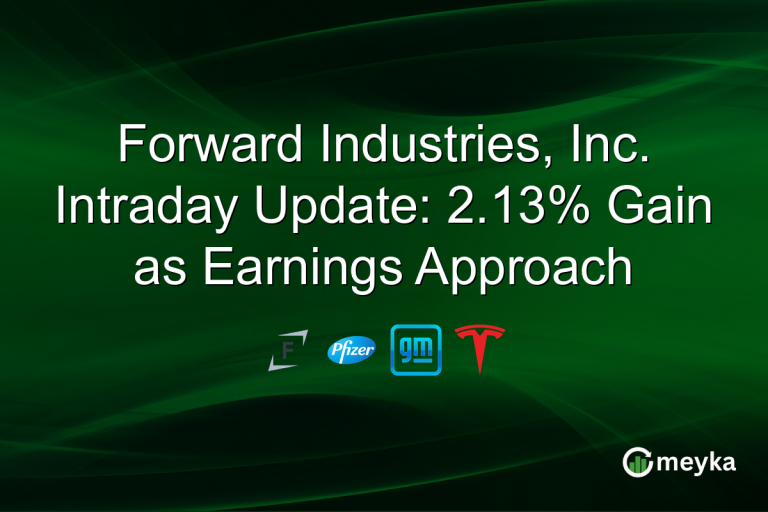LPL Financial’s Strategic Acquisition of Commonwealth Financial: Impact and Analysis
LPL Financial, a leading player in the wealth management sector, recently completed the strategic acquisition of Commonwealth Financial Network. This move, a substantial leap for LPL Financial, is set to reshape the dynamics within the financial advisory landscape. As the wealth management industry continues to evolve, strategic acquisitions like this underscore a drive toward greater market coverage. Already, investors and analysts are keenly watching LPL Financial’s stock, listed under LPLA, to gauge the impact of this acquisition. Recent data highlight both volatility and growth, making this acquisition a pivotal moment for shareholders. Join us as we dive deeper into the implications and potential outcomes of this acquisition.
The Strategic Importance of the Acquisition
When LPL Financial decided to acquire Commonwealth Financial Network, it signaled a clear strategic intent to expand its reach and service capabilities. Commonwealth Financial has long been respected for its robust network of independent advisors, bringing valuable assets under LPL’s management. This acquisition not only increases LPL Financial’s advisor base but also enhances its market distribution, positioning it as a leading contender in personalized financial services. The wealth management sector is competitive, with firms constantly innovating. This move allows LPL to leverage Commonwealth’s strengths, potentially improving client retention and satisfaction. Investors are now eyeing the LPLA stock price performance, curious about how this acquisition will translate into financial growth.
Impact on LPL Financial’s Stock Performance
Following the acquisition, LPL Financial’s stock price has experienced fluctuations, highlighting both challenges and opportunities. As of now, LPLA’s stock is priced at $335.75, reflecting a decrease of 1.07% from a recent high. Despite recent volatility, the stock shows substantial long-term growth, with a 5-year increase of 446.35%. Analysts have shown confidence, with most rating the stock a ‘Buy’. The potential for increased revenue and client base strengthens LPL’s attractiveness. Investors should note the trading volume, currently at 2.93 million, indicating heightened investor interest. The stock’s future performance will largely depend on how quickly LPL can integrate Commonwealth’s assets and capitalize on new opportunities.
Market Reaction and Investor Sentiment
Investor sentiment regarding the acquisition remains cautiously optimistic. The wealth management industry’s growth prospects, aligned with LPL’s strategic goals, have sparked interest. Recent discussions on social media platforms, including this one, show varied opinions, with many anticipating enhanced client services and stronger market positioning. Despite short-term stock price dips, long-term forecasts remain favorable, with targets suggesting potential upsides. Analysts project a median target of $332, but bullish sentiments aim for $460 in the near future. Investors should stay informed as integration progresses, assessing LPL’s ability to maintain its growth trajectory and market standing.
Looking Ahead
The path forward for LPL Financial following the Commonwealth acquisition is paved with opportunities to redefine its service offerings and expand market influence. The integration process will be critical. Operational synergies and effective management will determine success. Analysts and investors are particularly focused on upcoming earnings reports. The anticipated results could provide insights into the operational efficiencies gained from the acquisition. As LPL Financial continues this strategic journey, shareholders should monitor how these changes align with broader industry trends. The wealth management industry is rapidly evolving, and LPL’s ability to adapt and thrive will be essential in maintaining its competitive edge.
Final Thoughts
LPL Financial’s acquisition of Commonwealth Financial Network signifies a bold step in expanding its influence in the wealth management sector. While the short-term stock performance reflects some volatility, the long-term prospects appear promising. This strategic expansion can enhance client services, increase revenue, and solidify LPL’s market position. With market conditions favoring growth in financial advisory services, LPL’s proactive approach positions it well among competitors. Investors should keep an eye on upcoming financial reports and integration success to fully understand the acquisition’s impact. Platforms like Meyka provide valuable insights into real-time market shifts and financial analytics, offering a comprehensive view for informed decision-making.
FAQs
The acquisition aimed to expand LPL Financial’s advisor network and market distribution. By integrating Commonwealth’s strengths, LPL looks to enhance client retention and satisfaction, positioning itself as a leader in personalized financial services.
Since the acquisition, LPL’s stock has seen some fluctuations. Currently, it’s priced at $335.75 with a recent decrease. However, the stock has shown a 5-year increase of 446.35%, reflecting strong long-term growth potential.
Investor sentiment is cautiously optimistic. The wealth management industry’s growth, aligned with LPL’s strategic goals, has sparked interest. Despite short-term stock dips, long-term forecasts remain favorable, with analysts projecting potential upsides.
Investors should focus on the integration process and upcoming financial reports. Monitoring how these changes align with industry trends will be crucial. LPL’s ability to leverage the acquisition effectively will play an essential role in its future performance.
Disclaimer:
This is for information only, not financial advice. Always do your research.






